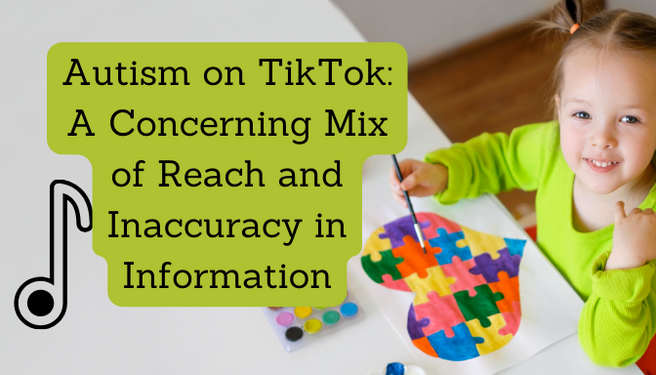In recent years, attention-deficit hyperactivity disorder (ADHD) has evolved from being viewed solely as a childhood issue to a persistent condition affecting many adults, including university students. While this revelation has brought about much-needed awareness, the challenges faced by students with ADHD in higher education still need more attention and understanding. A study by Vanessa Müller, David Mellor, and Bettina F. Pikó published in Education Sciences sheds light on this critical issue and provides insights into the psychological factors contributing to the high dropout rates among university students with ADHD symptoms.
The Growing Prevalence of ADHD in Higher Education
ADHD affects an estimated 8.4% of individuals applying for university admissions, with some studies suggesting that up to 15.9% of students across various countries have ADHD symptoms. These students often struggle with attention, organization, and time management, all of which are vital to academic success. Hungary, where the study took place, is no exception. Despite a significant demand for ADHD diagnoses, the resources available in the country remain limited, leading to a gap in knowledge about how many students are affected and the challenges they face.
Academic Challenges for Students with ADHD
One of the most pressing concerns for students with ADHD is their higher likelihood of dropping out of university compared to their peers. Students with ADHD symptoms often have difficulties with executive functions, such as following directions, organizing tasks, retaining information, and problem-solving. These difficulties can make it hard for them to meet academic expectations, leading to underperformance on assignments and exams. Beyond academics, their struggles often extend to time management, classroom behavior, motivation, and interactions with professors and peers. All of these factors combined can create an overwhelming situation, making it easier for students to consider dropping out as a way to escape their struggles.
The Importance of Identifying Dropout Intentions Early
Interestingly, the study suggests that it is crucial to detect early signs of potential dropouts rather than waiting until students have already made the decision. The intention to drop out of university is often a strong predictor of actual dropout behavior. This intention typically manifests in two ways: contemplating leaving university and discussing this decision with friends, family, or other trusted individuals. By identifying students at risk of dropping out early, universities can implement targeted intervention programs to help them stay on track.
Psychological Factors in Dropout Intentions
The researchers emphasize the importance of understanding the psychological elements contributing to dropout intentions. The study specifically focuses on three key factors that play a role in whether students with ADHD are more likely to consider leaving university: depression, academic resilience, and self-efficacy.
- Depression: Depression is a well-known risk factor for dropout intentions. Students with ADHD are more prone to experiencing depressive symptoms, partly due to the constant challenges and frustrations caused by their condition. In fact, the study suggests that ADHD symptoms directly predict higher levels of depression in university students, which, in turn, increases their likelihood of dropping out. This link between ADHD, depression, and dropout intentions highlights the need for mental health support specifically tailored to students with ADHD.
- Academic Resilience: Academic resilience refers to a student’s ability to thrive and succeed despite facing challenges. In the context of students with ADHD, resilience is crucial because it helps them cope with the inevitable setbacks they experience in their academic journey. Students with higher levels of resilience are more likely to stay engaged with their studies, even when things get tough. The study suggests that academic resilience acts as a buffer between ADHD symptoms and dropout intentions, meaning that students with ADHD who are more resilient may be less likely to consider leaving university.
- Self-Efficacy: Self-efficacy is the belief in one’s ability to accomplish tasks and achieve goals. For students with ADHD, having high levels of self-efficacy can make a significant difference. The study found that while self-efficacy did not directly mediate the relationship between ADHD and dropout intentions, it did play a moderating role. In other words, students with ADHD who have higher levels of self-efficacy are less likely to be influenced by their symptoms when it comes to considering dropping out. This finding suggests that boosting self-efficacy through targeted interventions could be a key strategy in helping students with ADHD succeed in higher education.
How Can Universities Help?
Given the findings of this study, it is clear that universities need to take a proactive approach to supporting students with ADHD. Here are some practical steps that institutions can take to address the unique challenges faced by these students:
- Early Identification and Support: Universities should implement screening processes to identify students at risk of dropout early. This could include regular check-ins with academic advisors, mental health screenings, and surveys to gauge students’ stress levels, depression, and academic resilience.
- Mental Health Services: Offering comprehensive mental health services is crucial. Students with ADHD are at higher risk for depression, which can compound their academic struggles. Providing access to therapy, counseling, and even peer support groups can help students manage their mental health and stay on track academically.
- Building Academic Resilience: Programs that focus on building academic resilience can equip students with the skills they need to overcome setbacks and stay engaged with their studies. These programs could include workshops on time management, organization, stress management, and goal-setting, all of which are essential for students with ADHD.
- Enhancing Self-Efficacy: Helping students build their confidence in their academic abilities is another key strategy. Universities can offer mentorship programs, peer tutoring, and skill-building workshops that focus on developing self-efficacy. When students believe in their ability to succeed, they are more likely to stay motivated and persist through challenges.
- Inclusive Teaching Practices: Educators play a central role in supporting students with ADHD. Teaching practices that promote engagement, offer clear instructions, and provide flexibility can make a significant difference. Additionally, incorporating technology and multimedia into learning can cater to different learning styles and keep students with ADHD engaged.
Conclusion: The Path Forward
ADHD is not just a childhood disorder; it is a condition that affects many adults, including university students. The findings of this study highlight the critical role that mental health, academic resilience, and self-efficacy play in determining whether students with ADHD will persist in their studies or drop out. By understanding these factors and implementing targeted interventions, universities can help reduce dropout rates among this vulnerable population. As awareness of adult ADHD continues to grow, it is essential that higher education institutions adapt to meet the needs of these students, ensuring that they have the support necessary to succeed both academically and personally.
The challenge now lies in creating environments that are not only accommodating but also empowering for students with ADHD, enabling them to thrive despite the obstacles they face. With the right support, these students can not only stay in university but also excel, contributing their unique strengths and perspectives to their academic communities




